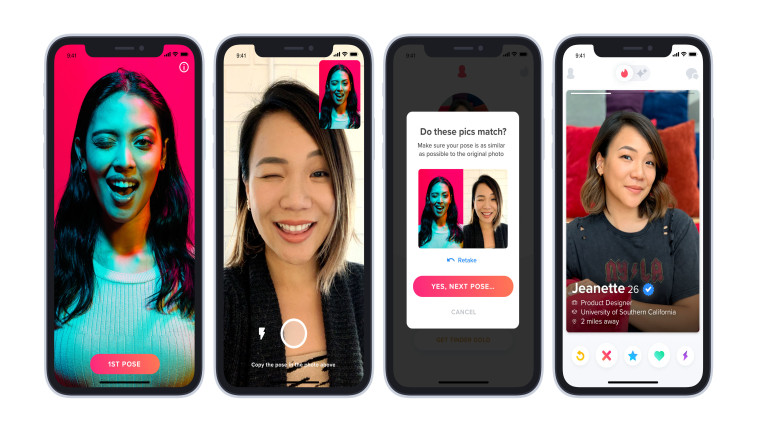
Tinder, the popular dating app, announced safety features today which include Photo Verification, a service that lets users verify the authenticity of their matches, a partnership with the safety app Noonlight to help daters call emergency services easily if need be, and a "robust, easily accessible in-app Safety Center."

For the photo verification tool, users will be required to take a selfie matching the pose shown by a model in a sample image. Upon verification by Tinder's community team that the users match their given pose and the photos on their profile, they will receive a blue checkmark so members can trust their authenticity. For now, this feature is currently being tested in select markets and will be made more widely available throughout 2020.

To improve safety, Tinder is integrating with Noonlight, giving US-based users free access to the app. After syncing profile with the safety app, users may choose to display a warning badge on their profiles, telling members that they're protected. Daters can inform Tinder and Noonlight when they're going on a date, and if there is an emergency, they can be connected with the local emergency services immediately. Brittany LeComte, Co-founder and CCO, Noonlight, said:
Noonlight acts as a silent bodyguard in situations when you're alone or meeting someone for the first time. Now, through our integration with Tinder, it can serve as a quick backup for daters, helping to deter bad behavior and helping members meet matches with more confidence. It’s a first-of-its-kind added security measure to help protect Tinder members even when they’ve taken their interactions off the app into real life.
Tinder is also adding a Safety Center which will be equipped with resources and tools to advise users on how to stay safe and handle harassment. When the app detects a potentially offensive message, users will be asked: "Does This Bother You?" If they give an affirmative response, they can report the sender.
Via The Verge
















0 Comments - Add comment